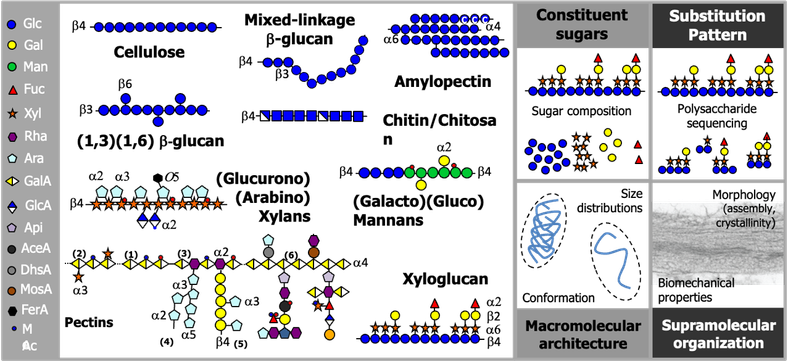Carbohydrates: building blocks of life
Complex carbohydrates (‘glycans’ or ´polysaccharides’) are fundamental biomolecules responsible for many regulatory processes in life sciences. They constitute the main energy-reserve molecules (e.g. starch, glycogen) and they provide structural stability in eukaryotic cell walls (e.g. in plants and fungi).
Polysaccharides constitute moreover the main components of biomass and therefore the main renewable resource for human and animal nutrition, biofuels and material production. New schemes have emerged for the sustainable exploitation of polysaccharides (the ‘biorefinery’ concept), towards our society’s transition to a biobased economy.
Polysaccharides constitute arguably the most heterogeneous and structurally complex family of biomacromolecules. They are typically built of a broad number of constituent monomers (monosaccharides or “simple sugars”) linked to each other through a great variety of glycosidic linkages with rich stereochemistry. Polysaccharides are often substituted and exhibit branched structures, which result in an extremely complex macromolecular architecture.
“The structural heterogeneity of native polysaccharides at the different hierarchical levels is fundamental for their specific functionality in biological tissues; however, this structural complexity imposes major difficulties for their biotechnological exploitation.”

Molecular structure of the common polysaccharides in biomass. Hierarchical levels of structure.